Truth in Historical Fiction
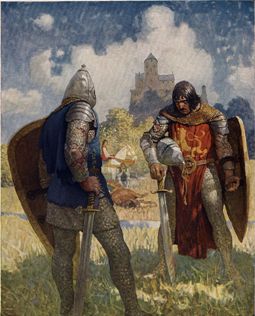
Anet, Northern France, AD 1176
The summer breeze rustled the oaks where the tournament company of King Henry the Younger waited in ambush. It carried with it the sound of hooves, jingling harness and men chatting.
Sir William Marshal suppressed a grin. “Here they come, messers.” (*)
I was frankly terrified when I first put my writerly boots on the ground in 12th century France and perched on the shoulder of a 30-something William the Marshal as he lay in ambush with his lord, the bratty Henry the Younger.
In a sense, everything in my life had prepared me for this moment. I’d always been obsessed by Medieval History, spent my childhood dragging family around castles, read Malory at 11, Froissart at 12, and could recite the deeds of the Marshal when I was younger than that. I studied the subject to postgraduate level. I even have a sword scar and can teach you how to use a longsword.
Despite all this, writing that first line was terrifying.
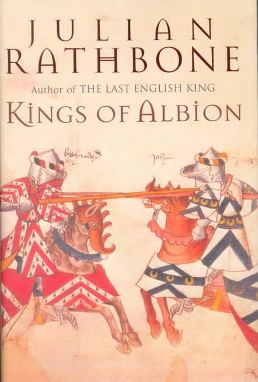
Yes, partly it was the pressure of imagining gleeful “caught you out” one-star reviews on Amazon. Mostly, though, it was because I felt like a time traveller, an interloper in a real place.
I couldn’t just make stuff up! I had to infiltrate what was already there.
I prepared for my incursion by learning about modes of address — squinting at the Norman French of William’s biography to assure myself that, despite the translation, everybody of rank is merely “sir” — brushing up on concepts of chivalry, consulting on plausible sword and shield combat (we don’t have a manual for that era). I used Google Street View to walk the ground.
And I wrote my tournament, and my quest, and my bridge fight at Kerak, all with books and reference images to hand.
In contrast, Julian Rathbone wrote Kings of Albion, his entertaining novel about how awful and sordid the Medieval West was, based (according to his gloating afterword) mostly on minimal research (*) plus Shakespeare’s History Plays! He even invented the liberal culture of the poorly documented Indian kingdom (*) that serves as a sharp contrast to our rapey grimy war-criminal ancestors.
(Sigh.)
I suppose it’s down to what truth you are after — and that’s where it gets complicated.
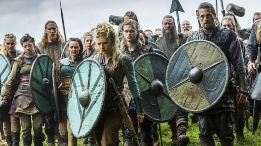
I write Historical Fiction because I want to be there in whichever benighted century my muse — or contract — has taken me. I want to feel the ground thrum under my boots at Crecy as ten thousand French knights thunder to their doom, I want my chest to resound to the war cry of thousands of barbarians storming the breech at Orleans… I want to drink mead with Beowulf, wine with the Marshal, and dine with the Black Prince.
The truth I want to get at is, “This is what it was like and why people did this crazy stuff, and it was as magnificent as it was awful.”
No, my Muse won’t get out of bed for anything less than a promise of obsessive period authenticity and historical accuracy, but are these supporting details — manners, floorplans, clothing, armour, military doctrine, dates and chronicle entries — really part of that truth?

The makers of the Vikings series seem not think so. Their story rollicks along doing Bad Things to recorded history, putting some nations in armour so anachronistic that it would actually still be too late period for the Wars of the Roses, and cheerfully painting the cultures of the time with broad, wildly inaccurate, but colourful brushstrokes.
And yet, the series captures the truth of the vigour of the real Vikings and the visceral nature of the culture and combat. (The same could also be said of the equally inauthentic but glorious 1950s movie of a similar name.)
There’s also a limit beyond which detail no longer means anything. Even I stopped short when I found myself poring over the lists of the Buckingham retinue for the 1450s — ultimately, they were just names. They didn’t convey any truth deeper than variations on “Peter” were popular Christian Names.
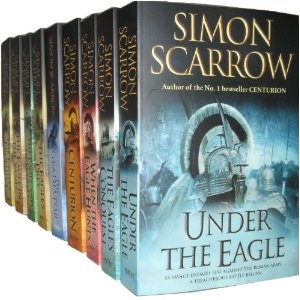
Fictional reconstructions of the past are always going to be part fabrication and the levels of authenticity and accuracy are always going to be artistic choices.
What’s interesting is that those of us who know history are still as happy suspending disbelief for Vikings (and for the old movie) as we are for the far more historical Sharpe series (TV or books). It seems that, ultimately, what matters is that the creators should pick a level of authenticity (correct period detail) and accuracy (correct history) and stick to it.
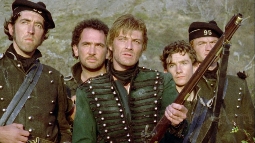
At the top end are people like me and my far more illustrious colleagues (who don’t know I exist) such as Simon Scarrow. As far as I can tell, his Eagles Series is very well researched. His depiction of the era is correct and the history is unchanged, except that he has inserted two protagonists just below the level of the big players, all of whom are real people. Other writers like this include the sainted Rosemary Sutcliff. Call this, authentic and accurate.
Next down are writers like Bernard Cornwell. Again, lots of period authenticity. However, his Richard Sharpe becomes more senior as the series progresses, and some of his deeds are borrowed from those of other men. The big history still plays out correctly, and the details are still the kind of thing that happened, but not what actually happened. Much of Harold Lamb’s historical fiction fits this model. Authentic but a bit inaccurate.
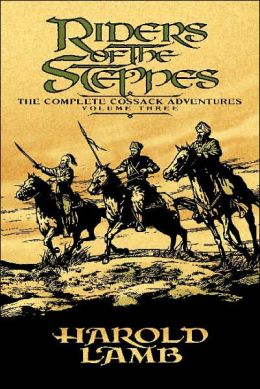
Then we sink into what is technically Alternate History — stories purporting to be historical with reasonable period authenticity, which however make up big chunks of history or even insert new monarchs. Here we’ll find Rathbone’s Kings of Albion and a lot of yarns by Lamb and Howard. Call it, Authentic but of unreliable accuracy.
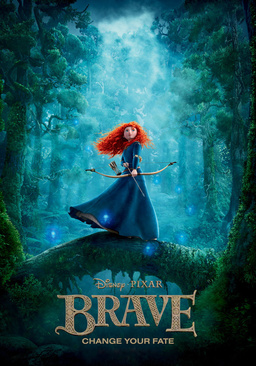
Finally, we hit the Historical equivalent of SciFi. It’s where Disney’s Brave and the old Robin of Sherwood nestle up up on a pile of older Pulp fiction, looking on while The Vikings tries to steal and/or burn everything. Somewhere near the bottom of this pile lie sub-genres such as Viking Romance (go on click the link). I call this, Not really bothering (but having fun).
Though I get cross about things like burgonets on Dark Age Bretons and this obsession TV designers have with grunge and black leather, I still think these levels of authenticity and accuracy are all fine… as long as you don’t use them to cheat and thus tell an untruth about the past.
For example, I can forgive the old The Vikings movie for its medieval-feeling English — and for all the other anachronisms and fabrications too long to list — because it also showed the Vikings as having some kind of domestic life in between all the bold adventure.
I am, however, less forgiving of Rathbone for his “Medieval West Bad, Medieval East Good” message, given it was based on an entirely fictional yardstick. Even so, I quite enjoyed reading it…
How about you? If you read or write Historical Fiction, what are your rules for authenticity and accuracy?
M Harold Page is the Scottish author of works such as Swords vs Tanks (Charles Stross: “Holy ****!”). For his take on writing, read Storyteller Tools: Outline from vision to finished novel without losing the magic. (Ken MacLeod: “…very useful in getting from ideas etc to plot and story.” Hannu Rajaniemi: “…find myself to coming back to [this] book in the early stages.”)
The majority of my reading is historical fiction and consider myself an amateur historian (mainly because I have a history degree and love doing historical research in my spare time). I would like it to be as authentic and accurate as possible but I realize that often times writers are not going to adequately research the period they are writing in. I can and do enjoy Vikings, not for the historical accuracy, but more because it is a decent, human story.
I recently discovered Scarrow and have started his 12(?) book series The Eagles. I also do enjoy Cornwell and have read almost all his stuff, my favorites being The Warlord Chronicles and The Saxon Stories, not necessarily for the accuracy but because they do have compelling, entertaining stories. The fact that Cornwell has done his research helps with that tremendously and I’m good with authentic but a bit inaccurate.
I will admit that I am currently reading Jack Whyte’s Camulod Chronicles and have had to suspend my desire for accuracy and authenticity, but at least the story is decent. I’m a bit obsessesed with Roman and Sub-Roman Britain and also the late antique period of the Near East up until the rise of Islam. I’ve yet to find good, entertaining and compelling historical fiction for that period – the writings of the church fathers are not very entertaining but they make excellent, if highly biased, sources.
Okay, 15 book series, The Eagles.
Patrick
What sort of things do you figure Robin of Sherwood got so wrong, historically? I remember being impressed at the level of detail they were able to get at with an obviously limited budget. As opposed to Vikings, which … um … seems not interested in that sort of thing at all.
(Fine article, by the way!)
1) Note to editors: More posts like this would have me visiting Black Gate all day long.
2) Flattery (however well deserved) out of the way, let me continue with more: Reading MARSHALL VERSUS THE ASSASSINS actually made reading my foray into the historical William much more enjoyable, because the fictional accounts were necessarily more detailed and visually portrayed than the much sparser historical ones.
3) That account, Thomas Asbridge’s THE GREATEST KNIGHT, demonstrates (according to other William scholars, including some who count themselves his descendants)another aspect of historicity: the scholars sometimes get stuff wrong – and show their own biases too. Still, Asbridge, like yourself, uses that contemporary biography to paint a vivid picture of William’s life.
Kudos to all!
4) It so happens I’m writing a version of Robin Hood in a WIP, introduced and backgrounded in one story, a character in his own right for the sequel. And any research into Robin will tell you one thing: you’re mostly on your own, and you can’t really do it wrong in his case, as he’s never been proven a real historical figure. So I can tease with elements that came much later in his folk “history” than the year 1297 I’m placing him in.
My Robin is a deliberately faux Robin, set in the same Foreworld Saga that spawned your Marshall story, and which already has a Robin appearing about 100 years earlier in the Sidequest THE LION IN CHAINS. So that “version” of Robin is long dead, and a noble family has deliberately carried on a made-up Robin through each generation until reaching mine, who has more of Manson than Hood in him. Other elements of both my stories must heel more closely to real historical events, such as the sack of Berwick, and settings, such as an old town built upon Roman ruins in North Yorkshire, and York itself. Both the hopefully accurate and the totally made-up aspects have been a delight to compose. Can faux Robin use his charismatic gifts to gain yet more power? We’ll see!
5) Thanks for writing this post, so “relevant to my intersts”, as they say, and your Sidequest too!
I’d also like to recommend Nicole Galland’s CROSSED as a great example of placing fictional “protagonists just below the level of the big players, all of whom are real people”. And funny as hell, too!
I have to stop coming back to this post, lol! However:
“some of his deeds are borrowed from those of other men”
Yep, combining historical figures a good way to beef up your fictional portrayal of real players when you don’t need absolute accuracy in your story.
I loved the Sharpe series. I liked his Civil War series as well.
As for alternate history I think Turtledove is hard to beat.
I love your works too Mr. Page. Always a good read.
Wow. A lot to respond to!
@Zhern: I do have one book about a young Hengest coming out of post Roman Britain to rescue his sister from the Hunnish invasion: http://mybook.to/ShldWll It’s a YA, but was a bit too oldschool for any publisher to pick up. Whether I write the planned sequels depends on events…
I take it you’ve read Rosemary Sutcliff?
@MDS: Actually, yes, Robin of Sherwood *does* get a lot of things right, especially the magic which has an authentic medieval feel. However, it’s not really interested in the details. The kit, for example, is mostly just cheerfully wrong. Various historical details as well, e.g. friars belong to the 13th century and later. Longbows also belong to the late 13th century. If you introduce massed longbows earlier, you break history.
@Mike Voss – Glad you like my post! Your concept sounds very cool. I too love Sharpe. However I don’t myself like the idea of stealing another man’s deeds. For example, Sharpe’s Eagle – the actual eagle hangs in Edinburgh castle near the sword used by Sergeant Ewart of the Scots Greys. I would put my character next to him, give my chap his own slightly less newsworthy deed, but I would not take away Ewart’s immortality.
@Wild Ape: Glad you like my stuff! Dare I hope that enthusiasm is reflected in some Amazon reviews…?
Just taking an opportunity to promote Rafael Sabatini while freely admitting I have no real idea how accurate he was though it seems he worked hard on his biography of Cesare Borgia everything else seems romanticized with unpleasantness kept to a minimum. Discovered Cornwell’s Sharpe series by way of a friend but like most series characters the latter books seem ‘more of the same’ examples: the Travis McGee after The Dreadful Lemon Sky which was the first novel which didn’t give me the thrill the previous ones had. I am aware it is difficult for an author to do a character justice book after book and feel embarrassed by the critique since I can’t write a coherent line but if I had to let one book go in Burroughs Mars series it would be Synthetic Men of Mars.
M Harold Page,
I don’t read much historical fiction, although I’ve heard so many good things about Bernard Cornwell that I have the intention of reading his books at some point. But this question about authenticity and accuracy got me thinking about the concept of legends. I’m a big fan of the Vikings TV Show and I don’t care too much about how accurate it is. The storytelling seems to me like a legend.
@Mr. Page – I just picked up Barbarian’s: Shieldwall. I’ll add it to my queue of books to read! Thanks for the suggestion.
Sutcliff is on my list to read. I’ve recently started down the Arthurian historical tales path but haven’t made it very far yet.
I do read the occasional historical, but I freely admit that most of what I read (Gary Jennings’ Aztec; Nicholas Guild’s The Assyrian) is kind of epic fantasy in all but name; at least, that’s how I react to it.
(Epic fantasy, but with way more blood & sex that were to be found in most big, fat fantasy novels of the 1980s.)
Also: So, Vikings: That bad, huh?
Please write the sequels to Shieldwall! I really need to know what happens to Hengest & Co next.
The illustration is a test, hm? I’m pretty sure you’ve used it on at least one previous post, so maybe the test is whether we notice?
As much as I love reading and playing with history, I’ve cheerfully embraced the fact that I don’t have the right set of chops to attempt real historical fiction. So I throw it all in the Cuisinart with a handful of blanched fresh basil leaves and zizz it until it’s a pleasant but still chunky consistency. Makes an excellent accompaniment to quirky secondary world fantasy.
@Sarah
I have Hengest’s adventures planned out. I’ve just been busy with other projects, alas….
The illustration is a test of history nerdiness. It references 12th century but the kit is more 14th.
Every time I’ve written historical fiction I’ve had to make bits up. Usually it’s something needed for my plot, or some gap in scholarship that needs filling in order for the whole to make sense. My typical MO is to steal what I need from an earlier time period, file it down to fit, then beg forgiveness in my author’s note.
Writing historical fiction is, IMO, the literary equivalent of fine art restoration mixed with outright forgery. It’s the writer’s task to put the shattered mosaic back together, then construct what’s needed to fill the inevitable lacunae . . .
Excellent article, as always!
My own measure used for judgement is, does the author claim any sort of accuracy or authenticity? If so, and they turn round like Dan Brown and say it’s all based on historical fact, or refuse to admit their portrayal of the period is wrong (Braveheart), then it’s out with the flamethrowers at every opportunity.
Otherwise, I’m not so bothered. Of course there is the problem that readers do pick up wrong history from fiction books, but there isn’t really a way around that except a general cultural concept that these are fiction and shouldn’t be believed.
Also you can be very authentic and also very boring and not worth reading, as I found when I tried to read a Philipa Gregory book.
I find myself that the better and deeper the knowledge of the period I am trying to write in, the more the story sort of writes itself because you end up with obvious political sides, conflict in law, etc etc.
I have many criteria and standards for historical fiction that have to do with documented facts.
Among them include stand alones such don’t depict Napoleon as anti-slavery or even friendly to people of color.
There’s lots of room for manuever and characters and everything that makes for grand tales without ignoring the historical facts.
Fudging some facts, such as times when things happens (that are not the Big Things anyway), is probably OK as long as the author knows how and why these choices are being made.